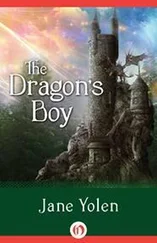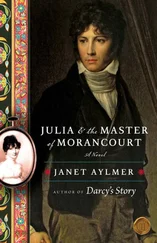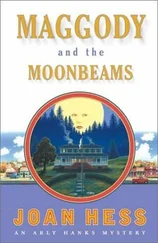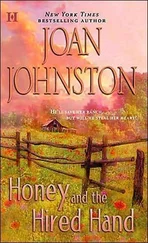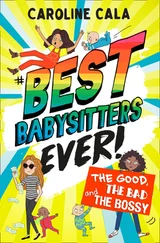Jane Yolen - Atalanta and the Arcadian Beast
Здесь есть возможность читать онлайн «Jane Yolen - Atalanta and the Arcadian Beast» весь текст электронной книги совершенно бесплатно (целиком полную версию без сокращений). В некоторых случаях можно слушать аудио, скачать через торрент в формате fb2 и присутствует краткое содержание. ISBN: , Издательство: Open Road Media, Жанр: Старинная литература, на английском языке. Описание произведения, (предисловие) а так же отзывы посетителей доступны на портале библиотеки ЛибКат.
- Название:Atalanta and the Arcadian Beast
- Автор:
- Издательство:Open Road Media
- Жанр:
- Год:неизвестен
- ISBN:978-1-4804-2335-0
- Рейтинг книги:4 / 5. Голосов: 1
-
Избранное:Добавить в избранное
- Отзывы:
-
Ваша оценка:
- 80
- 1
- 2
- 3
- 4
- 5
Atalanta and the Arcadian Beast: краткое содержание, описание и аннотация
Предлагаем к чтению аннотацию, описание, краткое содержание или предисловие (зависит от того, что написал сам автор книги «Atalanta and the Arcadian Beast»). Если вы не нашли необходимую информацию о книге — напишите в комментариях, мы постараемся отыскать её.
Atalanta and the Arcadian Beast — читать онлайн бесплатно полную книгу (весь текст) целиком
Ниже представлен текст книги, разбитый по страницам. Система сохранения места последней прочитанной страницы, позволяет с удобством читать онлайн бесплатно книгу «Atalanta and the Arcadian Beast», без необходимости каждый раз заново искать на чём Вы остановились. Поставьте закладку, и сможете в любой момент перейти на страницу, на которой закончили чтение.
Интервал:
Закладка:
The cub had stirred from its sleep and was rubbing its face with its paws. Bending down, she called to it softly and it scampered toward her. She caught it up under one arm.
“You don’t want to stay here either,” she said. “You’d rather be free under the sky. An eastern sky. Not an Arcadian sky where everyone still wants to kill you. But you’re not old enough yet, not strong enough. So you’ll have to stay with me a while longer.”
She climbed out the window and onto a ledge. Tossing her bow and quiver and spear to the ground, she then lowered herself carefully until she was hanging on by one hand, the cub clutched in the other. Dropping the last few feet, she hurried into the cover of the olive trees.
“This is going to spoil the king’s celebrations, you know,” said a familiar voice. Melanion stepped out of the shadows into plain view. “He’s planned a week of feasts, some even for the common people.”
“What are you doing here?” Atalanta asked crossly.
“I’ve been watching your window all night, and…” He stopped, suddenly too embarrassed to go on. “You’re leaving, aren’t you?”
“Yes, and you have to promise you won’t tell anyone,” said Atalanta.
“Of course not, though they’ll figure it out soon enough. I understand, though. I know what it’s like to be cooped up in a stuffy palace when you can hear the outdoors calling to you. But we’ll meet again.”
“Did an oracle tell you that?”
Melanion grinned. “No, I just know it. Here.” He placed his hand over his heart.
She put her hand over his. “I know it, too.”
When she caught up with Evenor, she found him among the trees some miles north of the city. He had three shepherds with him, helping drive the cattle and sheep.
“Atalanta!” he said when he saw her, but there was no surprise in his voice, just pleasure.
“I’m not ready to be a princess,” Atalanta said by way of explanation. “Not yet, anyway. I may not belong in the wild with the animals, but I don’t belong here either.”
“You’re going to ruin their celebrations,” said Evenor with awry grin.
“So I’ve been told.” She looked back down the road as if she could see Tegea. “They’ll soon find someone else to gossip and sing about. As for me, I’ve had enough of kings and gods.” She smiled and signaled the herders. “Let’s go home.”
WHAT IS TRUE ABOUT THIS STORY?
DID THE HEROIC AGE, the Age of Heroes, really exist?
Yes and no.
No—there was not a time when gods like Pan and Artemis actually took part in human affairs, nor was there ever a mantiger—a winged lion—preying upon the kingdom of Arcadia.
But, yes—there was once a rich and powerful civilization in ancient Greece, which we call Mycenaean, where each city was a separate state with its own king, but the people were united by a single language.
Arcadia was a district of ancient Greece, chiefly inhabited by shepherds and hunters. According to the poet Virgil, it was the home of pastoral simplicity and happiness, but actually it was a poor relative of the rest of the mainland, a mostly mountainous and infertile land, though grain was grown in some of the valleys. Surrounded on all sides by mountains, it has been called the Switzerland of Greece. Because of those mountains, when the rest of Greece was invaded in the Iron Age by the Dorians, Arcadia was left alone and the ancient speech of the Greeks survived there.
What also survived were anecdotes such as the one about Charmus, the runner, coming in seventh out of six runners, and a great deal of poetry. And—of course—stories. One of the most famous Arcadian stories is of the female hero Atalanta. She was known as a fantastic runner, and the story of her part in the Calydonian boar hunt was a standard in the Greek bardic recitations.
Did she ever meet Orion, the great hunter of myth, who was loved by Artemis and by the nymphs? Not that we know. But surely if these two hunters ever met, it could have been as prickly comrades. As for Orion’s death, there are many stories—some that he died when Artemis shot him by mistake, some that a scorpion proved his death.
We have made up the mantiger, a combination of the dreaded manticore (a mythic beast that hankers after human flesh, born in the Indies with the body of a lion, the face of a man, a tail like a scorpion’s) and the revolting Chimera (part goat, part serpent, part lion, with wings).
But we have not made up Astarte, who was one of the great Semitic goddesses and whose name appears in the Bible as Ashtoreth. She was the nature goddess of fertility and childbirth, as well as patroness of the hunt—so surely she and Artemis would have been rivals.
And what of Pan, the goat-footed god of flocks and shepherds and wild creatures? Arcadia was always the principal seat of his worship. He is described as wandering among the mountains and valleys there, either amusing himself with the chase or leading the dance of the nymphs. He loved music, invented the syrinx, or shepherd’s pipes, and was dreaded by travelers whom he startled with sudden awe or terror, hence the word panic.
A woman like Atalanta—even a mythic hero—must have had a childhood and adolescence that foretold her future deeds. This is what we know from the old stories about her: She was the daughter of King Iasus (or Iasius) and Queen Clymene of Arcadia. Expecting a boy, her father was distraught when a girl was born, and so he had her exposed on Mount Parthenon where she was found and suckled by a she-bear. Some passing hunters discovered her and brought her home, training her up as one of their own. Her birth and youth have always been as a footnote to the later stories.
Those later stories are all about her heroic adulthood. Hearing about a monstrous boar sent by Artemis to devour humans in Calydon when the king there neglected to perform his yearly sacrifices to the goddess, Atalanta took part in the hunt for the boar, despite some grumblings from the other hunters, all of whom were men. Only Meleager, the king’s son, welcomed her. When Atalanta dealt the boar its mortal wound, Meleager gave her the spoils of the hunt. His uncles taunted her, and in a passion Meleager killed them and was, in turn, killed by his own mother. Atalanta then went back to her father’s kingdom where she was finally accepted by him, for he had no other heir, and there she was expected to marry. She refused to do this unless she married a man who could beat her in a footrace. No one could until her handsome cousin Melanion (or Milanion or Hippomenes), having gotten Aphrodite’s protection, won the race with a trick, using golden apples given to him by the goddess to tempt Atalanta off the track. They married and had a son who was a hero and was eventually killed in battle by one of Orion’s grandchildren…but that’s another story altogether.
We have taken the Atalanta of the legends and tales and projected her backward, using what archaeologists and historians have told us about the civilization she would have inhabited if she had been a real young woman.
Or a young hero.
A Conversation Between the Authors
Jane:When we began the first of the four Young Heroes books, Odysseus in the Serpent Maze , we were quickly heads down in the thirteenth century BCE. I remember feeling amazed each time we swam up to the surface, where we were using computers to write the books, not scrolls, and sending emails back and forth, even when we were living in the same country.
And look where we are now: We have cell phones that can take us from point A to point B and take and send photographs from any location; we have twitters and tweets and more. Does all this technology make it even harder to get into the Heroic Age mindset?
Читать дальшеИнтервал:
Закладка:
Похожие книги на «Atalanta and the Arcadian Beast»
Представляем Вашему вниманию похожие книги на «Atalanta and the Arcadian Beast» списком для выбора. Мы отобрали схожую по названию и смыслу литературу в надежде предоставить читателям больше вариантов отыскать новые, интересные, ещё непрочитанные произведения.
Обсуждение, отзывы о книге «Atalanta and the Arcadian Beast» и просто собственные мнения читателей. Оставьте ваши комментарии, напишите, что Вы думаете о произведении, его смысле или главных героях. Укажите что конкретно понравилось, а что нет, и почему Вы так считаете.


